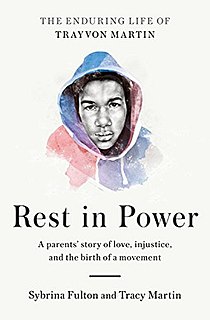A Quote by Salim Akil
There are so many families who do not come up in a traditional household. African Americans, Latins, and, I'm sure, whites as well, but there are a lot of men missing in African American communities and in Latin communities.
Related Quotes
One consequence of racism and segregation is that many American whites know little or nothing about the daily lives of African Americans. Black America's least-understood communities are those poor, hyper-segregated places we once called ghettos. These neighborhoods are not far away, but they might as well be on the moon.
I would definitely like to see the education process more enhanced in African-American communities, because we need to be educated on laws that are relevant to our communities and our people, as well as to any other ethnic groups. A broader view of how people perceive African-American boys and girls in this country is what I'd like to see.
I don't regret the fervor, because I do believe, in the African American community but also for other communities, and I know from talking to people, for communities around the world, the election of an African American to the most powerful office on Earth meant things had changed, and not just in superficial ways. That in some irreversible way the world was different.
The gun epidemic is the leading cause of death of young African- American men, more than the next nine causes put together. So we have to do two things, as I said. We have to restore trust. We have to work with the police. We have to make sure they respect the communities and the communities respect them.
There are not a lot of young African-American guys who come through the video room. I wanted to make sure I was one of those guys, not only to live up to that standard but almost make a breakthrough for young African-American men. There is a pathway for you through the video room as well, but you have to be willing to do the work.
Despite all of the civil rights gains of the past several decades, when it comes to economic opportunity, African Americans and Latinos still experience far more unemployment than do whites and Asians, average wages are lower, and household wealth is lower. A smaller percentage of African Americans and Latinos attend, and complete, college, than is the case with whites and Asians, and a higher percentage end up in prison. All of these are indicators of massive disparities in opportunity, and these disparities are mirrored in poverty data.
Many White people are not sensitive to the kind of abuse that African Americans, especially younger African Americans, receive at the hands of police officers and police departments. I think for most Whites their experience with the police has been good or neutral because they don't interact with the police as much as those in the Black community.





























